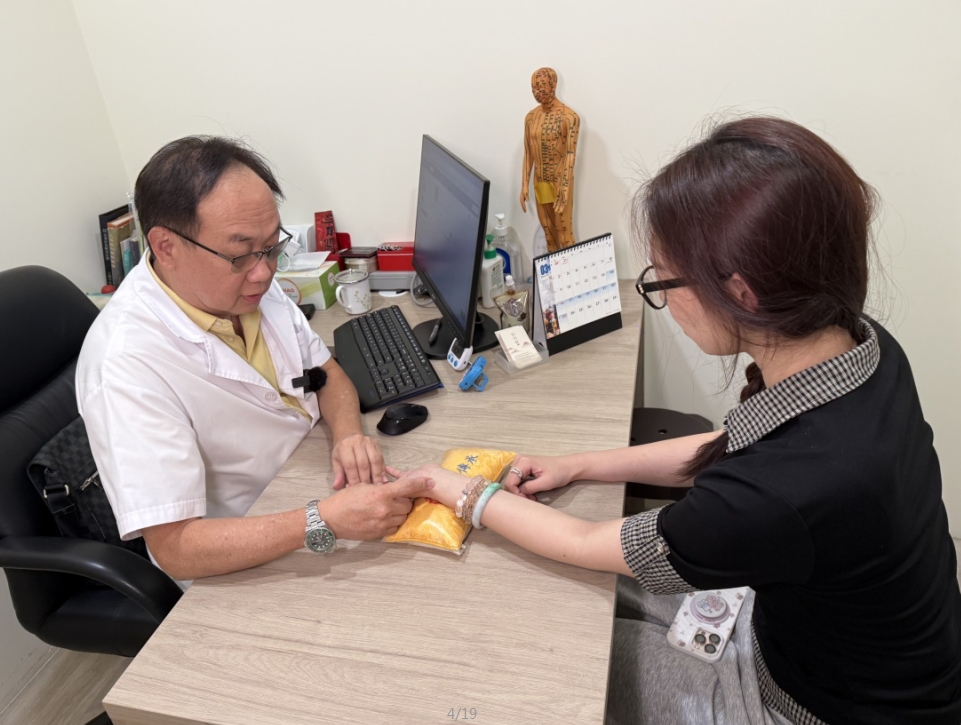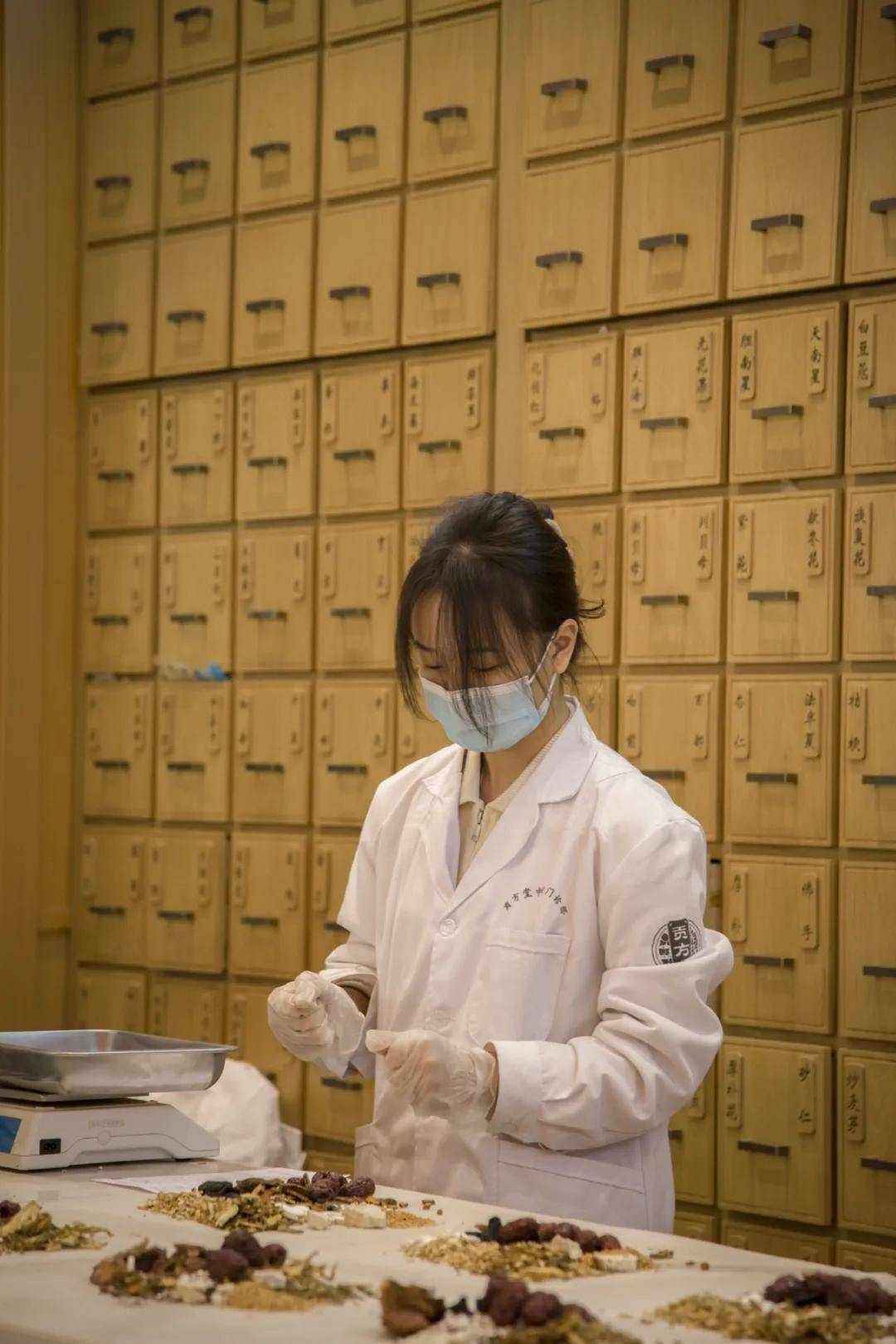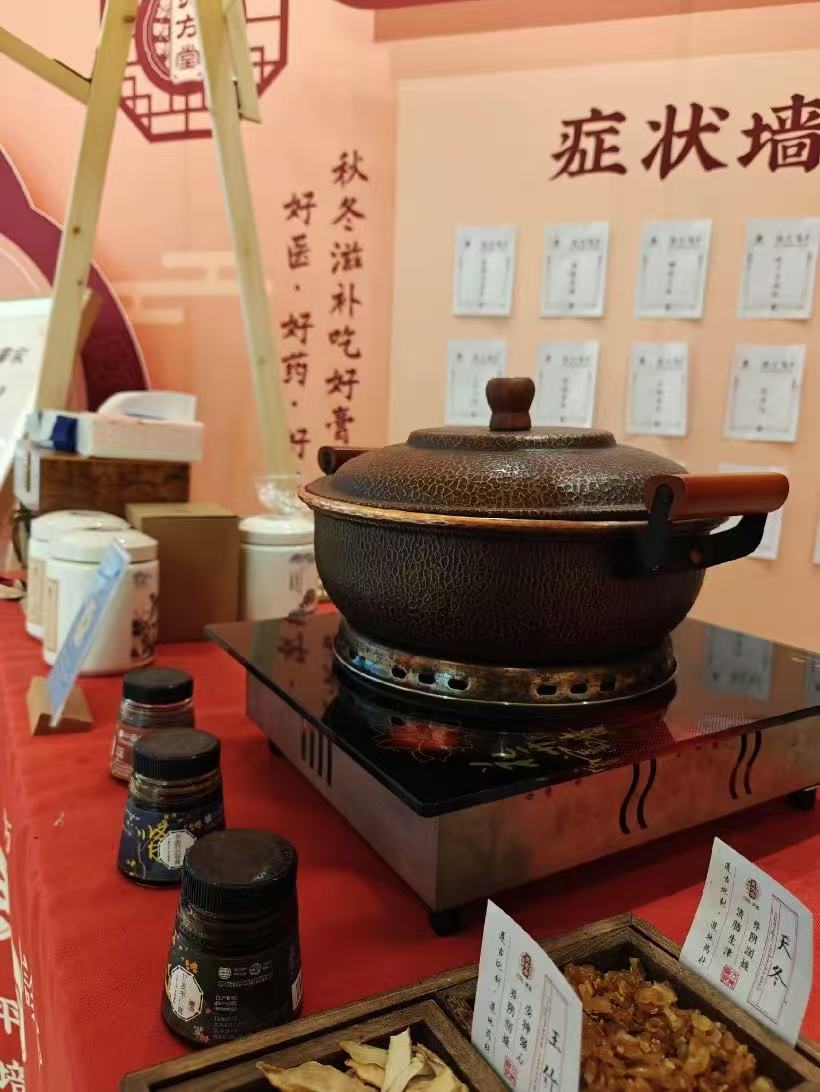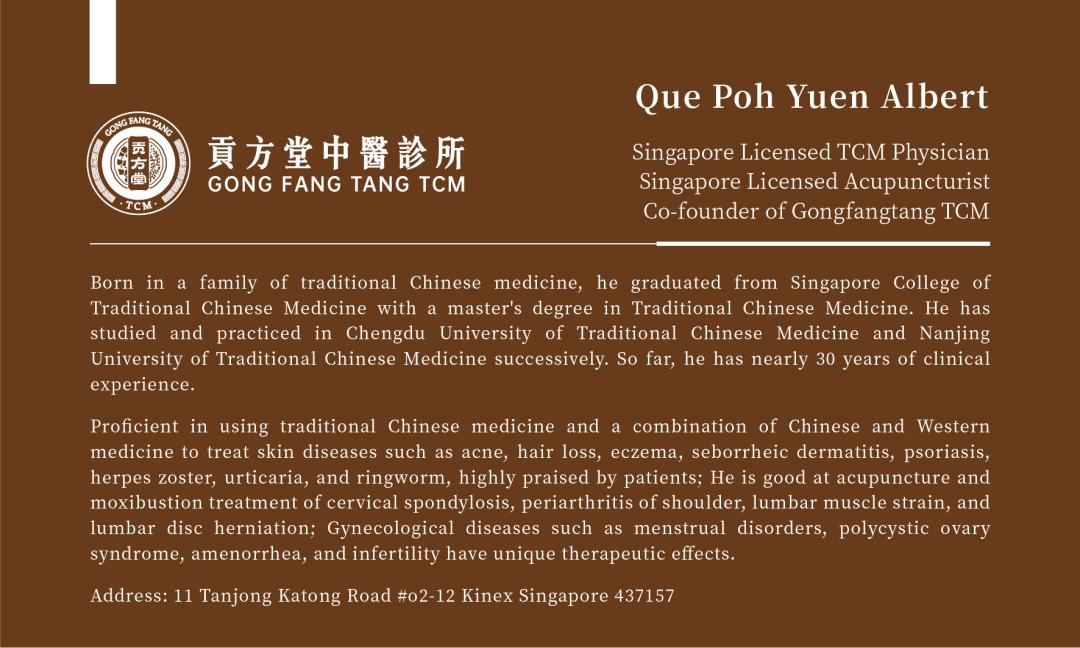- Physicians
- Clinics
- TCM
- Western GP
-
Fees
-
Deals & Privileges
- About & Resources
- Contact Us
In Singapore, many people suffer from rhinitis. In daily life, they experience constant sneezing fits—sometimes over a dozen in a row, seemingly unstoppable. Mild symptoms include profuse runny nose and unbearable nasal congestion, while severe cases may involve dizziness and loss of smell, causing significant distress.

What are the symptoms of rhinitis?
Allergic rhinitis, also known as hay fever, is a multifactorial condition caused by a combination of genetic and environmental factors. Its classic symptoms include nasal itching, sneezing, runny nose, and nasal congestion. Eye symptoms like itching, redness, and tearing are also common.
Mr. Qiu Baorun from TCM Department at Singapore Gong Fang Tang explains that rhinitis is an inflammation of the nasal mucosa triggered by viruses, bacteria, allergens, etc. It can stem from various physical or chemical factors or certain systemic diseases.
Rhinitis can be classified into acute and chronic based on the speed of onset:
Acute Rhinitis: An acute inflammatory disease of the nasal mucosa caused by viral infection, often part of an upper respiratory tract infection (common cold). It can occur year-round, is more common during seasonal changes, and peaks in winter. The common cold usually involves acute rhinitis.
Chronic Rhinitis: Classified into allergic and non-allergic types. Non-allergic rhinitis includes vasomotor rhinitis, pregnancy rhinitis, atrophic rhinitis, drug-induced rhinitis, and dry rhinitis.

How is rhinitis treated?
TCM refers to allergic rhinitis as "Bi Qiu" (鼻鼽), attributing it to imbalances in the Lung, Spleen, and Kidney systems. The Lungs govern the skin and open into the nose. When Lung Qi is deficient, the defensive function weakens, making the body susceptible to invasion by wind-cold pathogens that affect the nasal passages.
Lung Qi Deficiency with Cold Pattern: Symptoms worsen with cold air or temperature changes. Patient is prone to colds, spontaneous sweating, shortness of breath, and weak voice. Treatment: Modified Wenfei Zhiliu Dan (温肺止流丹) to warm the lungs, dispel cold, boost Qi, and secure the exterior.
Spleen Qi Deficiency Pattern: Accompanied by poor appetite, abdominal bloating, loose stools, fatigue, and sallow complexion. Treatment: Modified Buzhong Yiqi Tang (补中益气汤) combined with Yuping Feng San (玉屏风散).
Kidney Yang Deficiency Pattern: Accompanied by cold limbs, sore lower back and knees, and frequent nighttime urination. Treatment: Modified Jinkui Shenqi Wan (金匮肾气丸).
Important Reminder: Always consult a qualified TCM practitioner for diagnosis and personalized treatment.

Case Study
Patient: Female, 36, newspaper reporter, with over 20 years of allergic rhinitis history.
Chief Complaint: Year-round nasal congestion (dependent on nasal steroid sprays), morning sneezing fits (20+ times), watery nasal discharge, fatigue, aversion to cold, susceptibility to colds.
TCM Diagnosis: Lung-Spleen Qi deficiency with weakened defensive Qi.
Treatment Plan:
Internal Formula: Huangqi (黄芪) 30g, Dangshen (党参) 15g, Chao Baizhu (炒白术) 12g, Fangfeng (防风) 10g, Cang'erzi (苍耳子) 6g (wrapped), Xinyi (辛夷) 9g (wrapped), Baizhi (白芷) 9g, Fuling (茯苓) 15g, Guizhi (桂枝) 6g, Shengjiang (生姜) 3 slices.
Course: 14 doses, taken consecutively for 7 days followed by a 1-day break for observation.*
External Therapy: Acupuncture at points like Biliu (鼻流), Sanxiao (散笑), Yingxiang (迎香).
Feedback: By day 7, sneezing reduced to 5-6 times, nasal congestion eased. By day 14, smell largely restored, able to sleep lying flat at night.
Lifestyle Management & Prevention
Beyond treatment, rhinitis patients should:
Keep warm, especially during seasonal transitions, to avoid cold exposure.
Avoid spicy, greasy, and cold foods. Consume foods that strengthen the Spleen and Lungs, such as Chinese yam (Shanyao), lily bulb (Baihe), and coix seed (Yiyiren).
Engage in moderate exercise like Tai Chi or Baduanjin to enhance constitution and boost immunity, preventing rhinitis flare-ups.

TCM emphasizes pattern differentiation and personalized prescriptions. Specific herbs, dosages, and modifications MUST be determined by a qualified TCM practitioner based on individual diagnosis. Never self-medicate.